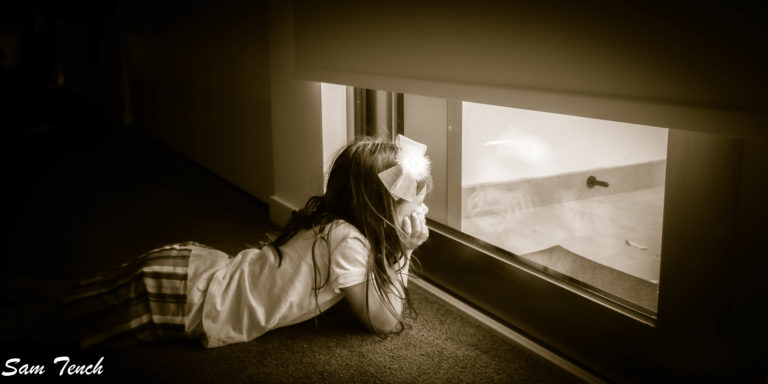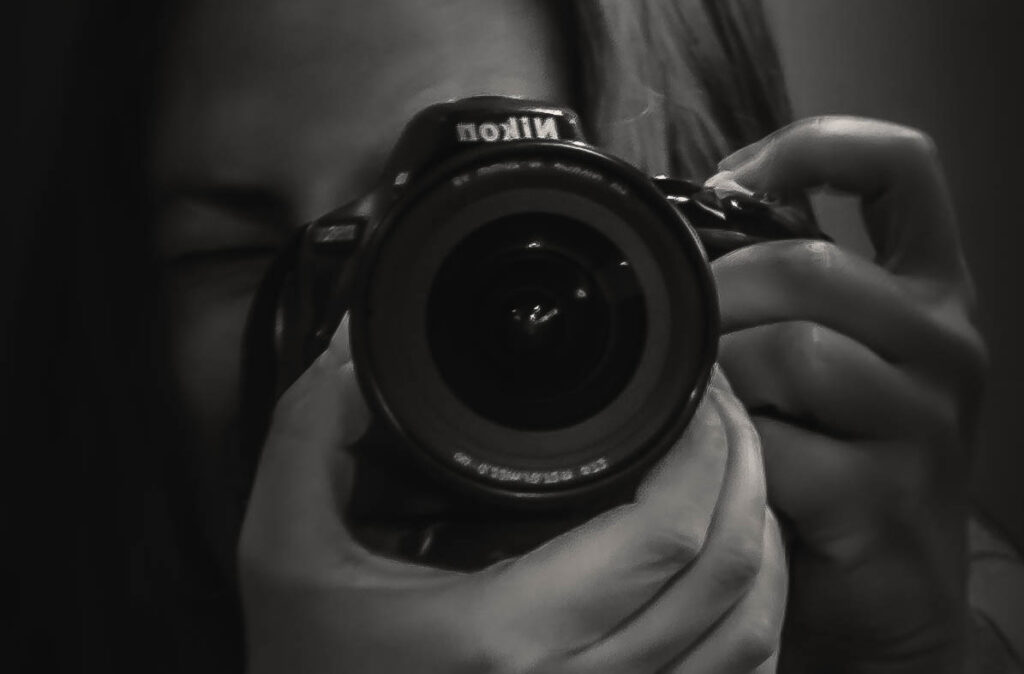COVID-19 is proving to be a challenge for everyone, not only for those who catch the virus. The effects may have deeper repercussions than the virus itself. This is particularly relevant for those of us who have the extra challenge of an eating disorder or other mental health challenge. This challenge requires us to navigate our way around a new world, a world unlike anything we’ve previously experienced. Suddenly life has been turned upside down and we can either learn to adapt or sink.
Until now, Australians have been fortunate to have the liberty of living life on our own terms and with minimal restrictions on how we go about our days. Looking back at those days, not long ago, I feel like we’ve been somewhat spoilt with abundance of choice and opportunities. Then 2020 brought challenges unlike any we’ve seen before; a new strain of virus called COVID-19. We find ourselves living in very different circumstances. 2020 is the year none of us will forget in a hurry; COVID-19 will be recorded as a significant event in the books of historians all over the world. We’ve been stripped bare of small and seemingly insignificant things we previously took for granted. Our right to live how we choose has all but disappeared. Police officers are door knocking to check how many people are at home, we get pulled over on the road to ensure we have an acceptable reason to be away from home. We are living each day abiding by strict rules and restrictions that strip away much of the independence previously taken for granted. A non-negotiable list of what we can and can’t do is dictated to us daily by our government. We’ve become confined to our homes.
The opportunity to be a social being, I believe, is an essential part of the foundation required for an individual to have a healthy state of mind. For most people, isolation from others necessitates considerable changes to daily life. Most people enjoy a day that revolves around human contact and interaction (and a lot of it), and so the sudden confiscation of such human presence may bring with it an array of reactions and implications. Therefore, understanding and acknowledging that everybody’s reaction is will be different is vital. Reactions will depend on previous life experiences and the degree of socialization a person is accustomed to. For a person currently living in ED hell, the isolation would be the least of their worries.
From my perspective, isolation can be likened to presenting a child with a plate of delicious-looking chocolate treats. Treats that the child has never experienced before. And just as the child finds the confidence and desire to reach out for a taste of those treats, the plate is snatched away. Such behavior towards a child would be unjustifiably cruel. What does this have to do with isolation and eating disorders? For myself, like the child who has never experienced the delicious treats, I’ve lived most of my life avoiding the world because being among groups of people exacerbated my anxiety. That was very much the case until I received my camera last year and slowly began to learn how to use it. The more I used and experimented with my camera, the more confident I became, the more fulfillment I began to feel and ironically, the less power ED’s voice had over me. This experience was truly amazing. Suddenly I began stepping out of my lonely home-bound world into the mainstream, among other people and with much to look forward to. Yet, like the child and the delicious box of chocolates that were cruelly snatched away, COVID-19 has driven me back into isolation. Losing the opportunity to freely practice my newly discovered interests and talents has been alarmingly hard and impactful to my ability to manage this difficult time. Just as I was beginning to move forward, feel a sense of being okay around people, experiencing a sense of joy, happiness and curiosity about the wider world and the places I might travel with my camera, this right was torn from me. I’ve been left in a state of internal confusion, sadness and feeling lost in a world that has become scary and out of control. I can add feelings of being overwhelmed and inadequacy to this list.
Like many parents, I have two young children at home, demanding attention and needing supervision to continue a skewed form of education. It’s difficult to describe to those who have not experienced an ED, but the combination of subsequent noise, uncertainty and self-criticism is infiltrating my mind, and is slowly building each day. I feel like a volcano is bubbling away in my mind. Disturbingly, it could erupt any day. All because a newly emerging life filled with hope got snatched away by a deadly disease and a resultingly messed up world.
Not everyone’s reaction will be extreme. Some people will take isolation in their stride, using the time in constructive ways; to relax and catch up on a favorite TV show, to do a much-needed spring clean, work in the garden or have a go at a free online courses. If you read my previous blogs, you will know that this had been my initial intention: to use the time to learn more and become a better photographer. Unfortunately, the demands of children 24/7 has made this an impossibility. Disappointingly, I can’t find enough hours in the day, but at this point, the education of my kids takes precedence. So, what is the difference between people who easily adapt, in comparison to those who struggle in coping with each day?
My Thoughts
An eating disorder is like living in your own private hell, and contrary to popular belief, it has little to do with food and more to do with what goes on in the mind. So, given this, here is my assessment of three categories of people going through COVID-19 induced isolation and how it may manifest in them.
- The non-ED sufferer: This group will feel the significant impact that isolation has on a person. Particularly for those who have always been highly social people, doing whatever they want to do, whenever they want to, unbothered by the presence of others. They live a carefree life; they see themselves as being entitled. These are likely to be the people who we have witnessed breaking the newly enforced rules, continuing to gather in groups at places such as the beach and in their own homes. Why are they going against advice? Do they believe they are immune to COVID-19? On the surface this may seem so but my guess is that they’re not comfortable with the idea of isolation; they’ve never had to experience it, probably wouldn’t know what to do with themselves and may even fear the idea of it, the uncertainty it might bring. On the other hand, the less outgoing social individuals from this group, who would rather stay at home than be out surrounded by people all the time, will manage okay by taking on a hobby, engage in online education or give the house an overdue and good spring clean.
- Current ED sufferer: You might be surprised to learn that someone living through an ED is very rarely alone. Not in their mind anyway. On the outside they may appear to be lonely and isolated but inside their brain, one that is incredibly active and relentless with its constant influx of information and criticism, there is a voice that never shuts up. This voice can be likened to having a whole different person residing inside yourself, continuously bossing you around and telling you how worthless you are to the world. This taunting voice leads this person to isolate from others and stay at home. Someone in this position will rarely feel the pain of isolation; they prefer to hide from the world because their illness never grows tired or stops telling them how inferior they are to everyone else. Considering this, in our current situation, social isolation may be more of a comfort than a difficulty, however, it’s detrimental and can lead a person further down the road of eating disorder.
- A place of vulnerability, but on the road to a better life, without ED: It seems unfair, but I see this group as most at risk of succumbing to the anxiety induced by the COVID-19 pandemic. People within this group have started to emerge from the ED induced isolation; they’ve pushed themselves through the difficult phases where they knew deep down what they needed to do, but their ED fought hard, making every small win a living hell. These people may be at the point where being part of the world is becoming an enjoyable and uplifting experience. Maybe they look forward to such occasions, despite the ongoing threat of hard-fought battles. Although these people are not technically ‘recovered’ from their ED, are well on the way to personal, healthy-self freedom. They’ve had a taste of freedom. It is exhilarating and they want more of it. So why would they regress? My own mentor June, has said on many occasions, “You need to get past the 51% point on the scale of recovery, then your end goal will become more attractive and easier to attain.” That’s because at 51% your healthy self is in a stronger position to out-vote the ED voice.
To be in this group, you need to have the strength to fight back, rather than being victim to ED’s bossiness. This stage is one of vulnerability. Without ongoing work, a person in this phase of recovery can easily find themselves rapidly spiraling downwards into the hands of ED. Therefore, I feel people in the early stages of recovery may be the most vulnerable to COVID-19’s enforced isolation in the home. Right now, this is where I see myself, having attended and completed inpatient treatment, attending regular treatment sessions and finally finding that something that brings meaning, interest and the desire to live and learn back into my life. For myself, photography has been undeniably influential in pulling me out of the deep dark hole in which I previously resided. In a short period of time, prior to COVID-19, my life had changed considerably. I looked forward to going places and capturing the beauty around me, I enjoyed the challenge of trying to capture that difficult shot, I enjoyed learning new skills and I enjoyed having this ‘thing’ just for me and for the people who enjoyed viewing my shots.
Life is beautiful when you can acknowledge you’ve made it this far. However, having had only a few months of significant change and lots of positive plans for 2020 (a totally new experience), COVID-19 has booted me back to square one. Could it be that the universe doesn’t want me to find the happiness that being free from an ED brings?
Right now, ED is knocking harder each day in order to re-claim power over my life. I am experiencing a persistent feeling of being overwhelmed, fear of a largely unknown future, frustration due to limited opportunities to engage in my photography, and above all, a raging sense of anger that wants to throw a tantrum at how unfair and unjust this is. Adherence to current COVID-19 regulations requires me to ignore a key piece of treatment advice — that is, “Get out into the world and watch ED squirm; ED loves self-isolation”.
This story is unravelling week by week. Stay tuned.

